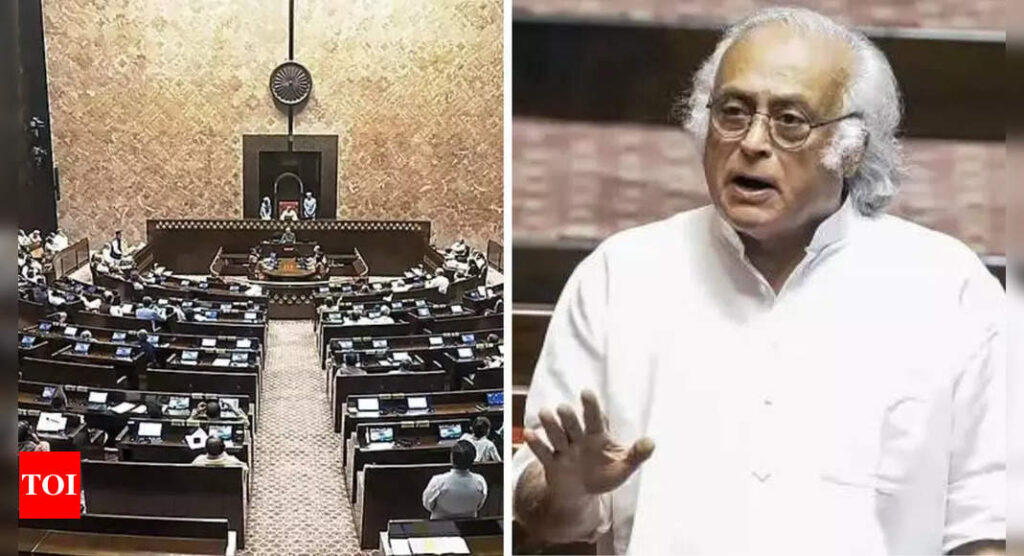
NEW DELHI: Congress leader Jairam Ramesh on Friday said the party will “very soon” challenge the constitutionality of the Waqf (Amendment) Bill in the Supreme Court. His statement came after the bill was passed by both houses of Parliament.
Sharing a post on X, Ramesh said, “The INC will very soon be challenging in the Supreme Court the constitutionality of the Waqf (Amendment) Bill, 2024.”
He further expressed confidence, asserting that the party will keep opposing “all assaults of the Modi government.”
“We are confident and will continue to resist all assaults of the Modi Govt on the principles, provisions, and practices that are contained in the Constitution of India,” he wrote on X.
The Congress MP also listed several other legal challenges filed by the party that are currently being heard in the top court.
“The INC’s challenge of the CAA, 2019 is being heard in the Supreme Court. The INC’s challenge of the 2019 amendments to the RTI Act, 2005 is being heard in the Supreme Court. The INC’s challenge to the validity of the amendments to the Conduct of Election Rules (2024) is being heard in the Supreme Court,” he said.
“The INC’s intervention to uphold the letter and spirit of the Places of Worship Act, 1991 is being heard in the Supreme Court,” he added.
Earlier, Prime Minister Narendra Modi hailed the passage of the Waqf (Amendment) Bill in both the houses of Parliament, describing it as a “watershed moment”.
Taking to X, PM Modi said, “The passage of the Waqf (Amendment) Bill and the Mussalman Wakf (Repeal) Bill by both Houses of Parliament marks a watershed moment in our collective quest for socio-economic justice, transparency and inclusive growth. This will particularly help those who have long remained on the margins, thus being denied both voice and opportunity.”
The Prime Minister thanked parliamentarians for their participation in discussions and acknowledged public contributions to the Parliamentary committee.
“For decades, the Waqf system was synonymous with lack of transparency and accountability. This especially harmed the interests of Muslim women, poor Muslims, Pasmanda Muslims. The legislations passed by Parliament will boost transparency and also safeguard people’s rights,” he said.
“We will now enter an era where the framework will be more modern and sensitive to social justice,” he added.
The contentious legislation cleared both houses of Parliament after extensive debates, with the Rajya Sabha passing it following a marathon 13-hour discussion. The bill received 128 votes in favor and 95 against in the upper house, while the Lok Sabha had earlier approved it with 288 supporting and 232 opposing votes.














